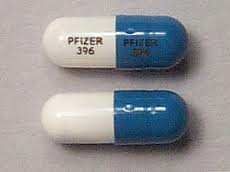Dosing and Efficacy of Ziprasidone in Adolescents
 At the 57th Annual Meeting of the American Academy of Child and Adolescent Psychiatry (AACAP) in October 2010, Kirti Saxena of Dallas, Texas described a small pilot study that compared rapid- and slow-dose titration of ziprasidone in adolescent patients with bipolar disorder. Both slow and rapid methods of increasing doses resulted in effective treatment of acute manic symptoms, with rapid dose increases achieving improvement slightly faster.
At the 57th Annual Meeting of the American Academy of Child and Adolescent Psychiatry (AACAP) in October 2010, Kirti Saxena of Dallas, Texas described a small pilot study that compared rapid- and slow-dose titration of ziprasidone in adolescent patients with bipolar disorder. Both slow and rapid methods of increasing doses resulted in effective treatment of acute manic symptoms, with rapid dose increases achieving improvement slightly faster.
Editor’s Note: Given the data from patients with schizophrenia that higher doses of ziprasidone are better tolerated than lower doses, rapid dose titration toward 160mg/day or higher in manic patients may be best, because low doses can be associated with agitation or excitation in some patients.
If ziprasidone is being used, it is important that it is taken with food and not on an empty stomach, because its bioavailability and ability to increase blood levels is highly dependent on its being absorbed with food. The variability of ziprasidone’s effectiveness based on whether it is taken with food might explain some inconsistencies in the findings on ziprasidone in the treatment of some syndromes.
Two potential concerns about ziprasidone are worth noting. 1) It has not been approved by the Federal Drug Administration (FDA) for the treatment of acute mania in children or adolescents, even though the placebo-controlled trials were positive. A further review of the data by the FDA is pending. 2) The drug is associated with prolongation of the QTC interval, a measure of electrical activity in the heart. Such a prolongation theoretically predisposes patients to cardiac arrhythmias. However, in clinical follow up studies in adults and children, this has not proven to be problematic, and a study comparing 9,000 adults on olanzapine (which does not increase the QTC interval) and ziprasidone (which does) showed equal degrees of adverse cardiovascular events.
Ziprasidone is clearly worthy of consideration for treating adolescents, because it does not cause weight gain, nor does it increase any of the metabolic indices, such as cholesterol, triglycerides, blood glucose, or insulin resistance, as seen with some of the other atypical antipsychotics. Ziprasidone has recently been FDA-approved as an adjunct to lithium or valproate in prophylactic treatment of adult bipolar disorder.
Comments
Leave a Reply

